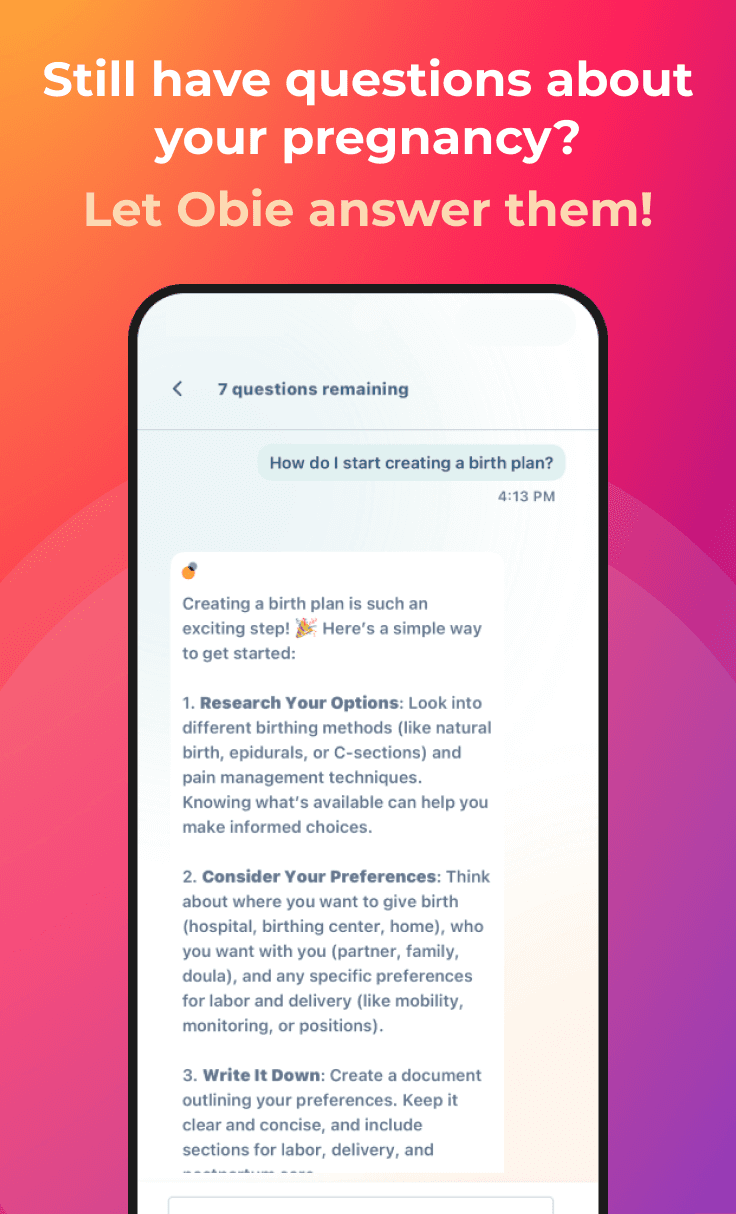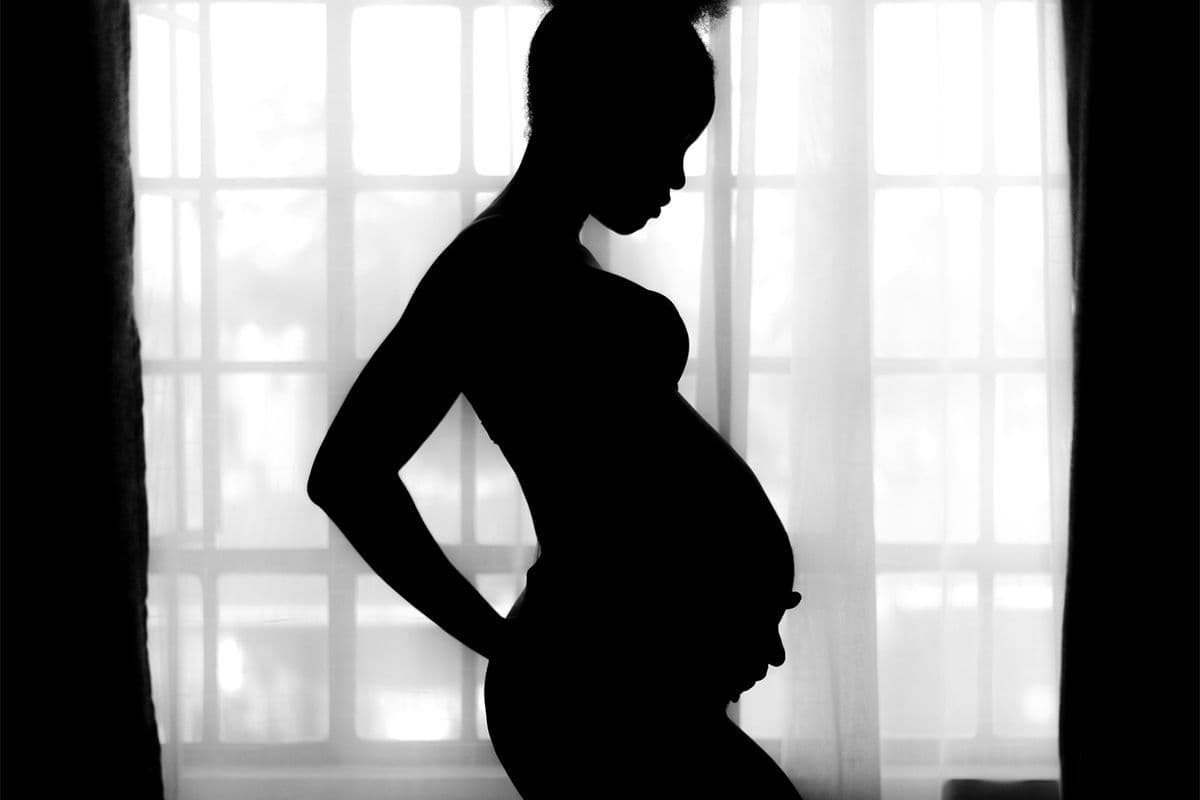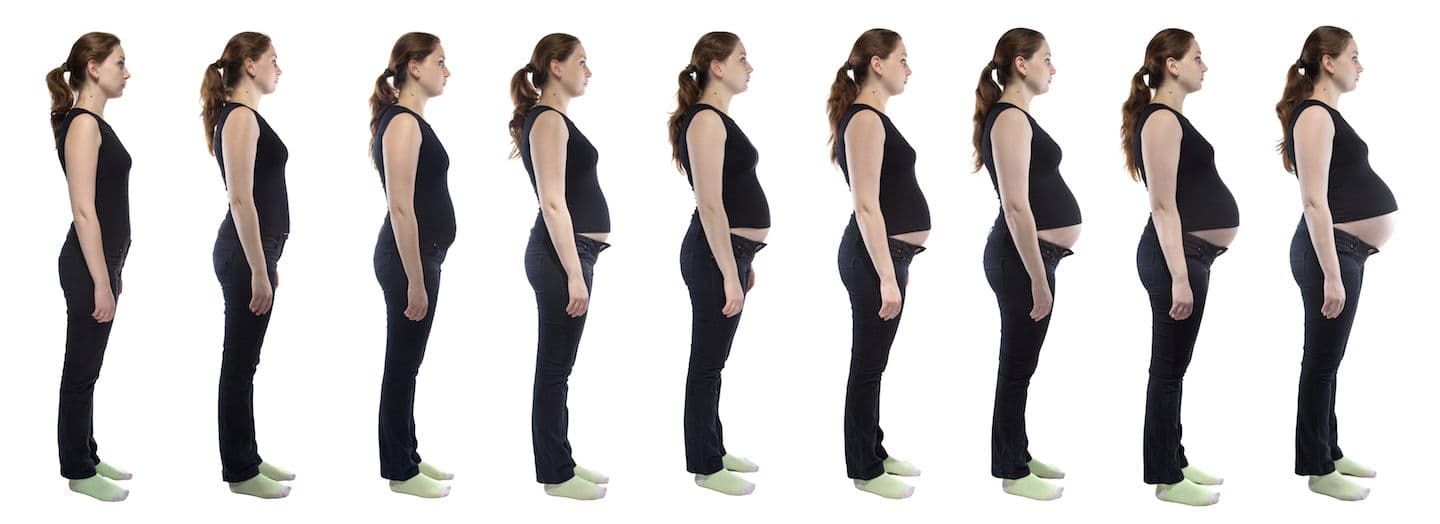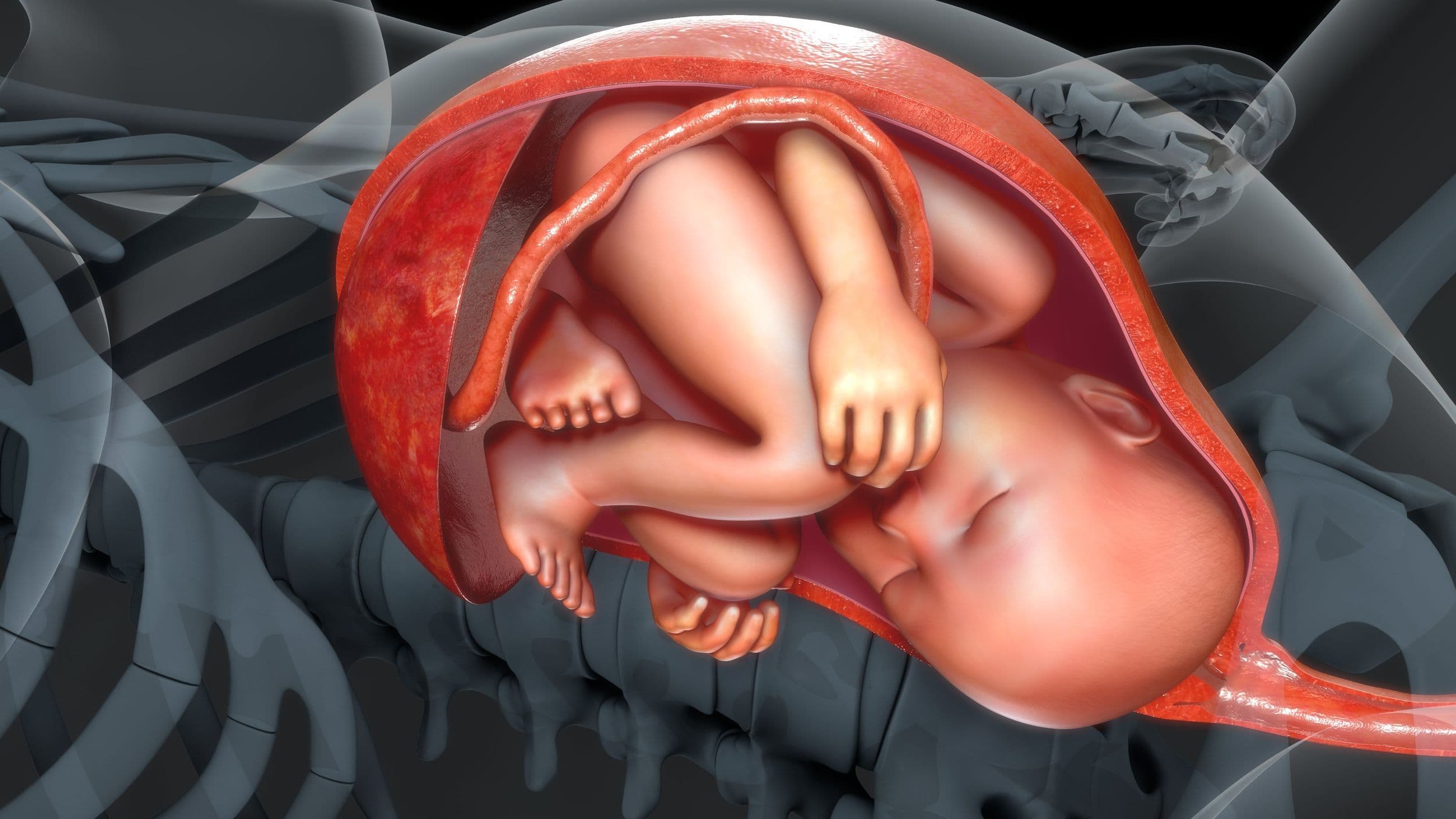Prenatal Visits in the Second Trimester
Pregnancy
Obie Editorial Team
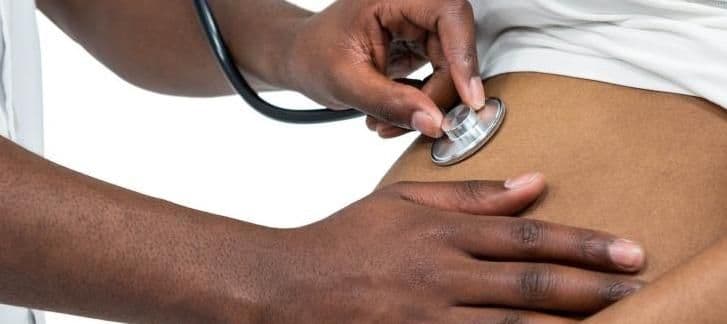
Welcome to the second trimester of your pregnancy journey! This is an exciting and pivotal time, typically spanning from week 14 to week 27. With a decreasing likelihood of miscarriage and the easing of early pregnancy symptoms like nausea and vomiting, you might find this to be a particularly enjoyable phase of pregnancy. To ensure that everything continues on the right track, regular check-ups and a series of tests are important to monitor your health and that of your growing baby.
Doctor’s Appointments
The landscape of prenatal and antenatal care has evolved significantly, especially in the wake of the COVID-19 pandemic. Traditionally, you might have expected monthly visits, which transitioned into weekly visits toward delivery, totaling 8-14 in-person visits. However, many practices now prefer a mix of in-person and telemedicine consultations, reducing the number of physical visits by approximately half. Connect with your healthcare provider to determine if virtual appointments are suitable for your prenatal care needs.
Learm more about the new prenatal care appointment model.
During the second trimester, you will likely participate in fewer physical visits, often replaced with telemedicine alternatives. However, key in-person appointments remain essential, particularly the anatomic ultrasound conducted around weeks 19-22 and the glucose screening around weeks 24-26. Your doctor will inquire about continuing symptoms such as nausea, baby movements, and any incidents of vaginal bleeding. These discussions and check-ups are crucial for assessing your well-being and determining if any additional evaluations are needed.
Tests and Screenings
Throughout your pregnancy, particularly in the second trimester, certain tests and screenings are vital. Discussing these with your healthcare provider ensures you’re well-informed and prepared for any necessary evaluations.
-
Lab Tests: You will undergo various lab tests to check important health indicators, including your iron levels and screening for gestational diabetes, a common pregnancy condition. If your blood type is Rh-negative, an Rh antibody test might be conducted. Additionally, a triple-screen test could be performed to assess the risk of fetal chromosomal abnormalities, such as Down’s Syndrome or spina bifida. Regular urine tests will also check for infections like urinary tract or kidney infections.
-
Ultrasound: The anatomic ultrasound, often referred to as a sonogram, is typically scheduled between 19-22 weeks. This detailed scan can last over 30 minutes and assesses fetal growth and developmental progress, ensuring your baby is developing as expected.
-
Glucose Screening: Conducted towards the conclusion of the second trimester, generally at 26-28 weeks, this screening evaluates your blood sugar levels to check for gestational diabetes.
-
Amniocentesis: This is an optional diagnostic procedure available in your early second trimester, providing insights into potential genetic disorders, such as Down Syndrome. It's performed based on individual preferences and specific risk factors.
Your second trimester promises numerous opportunities to engage actively with healthcare and gain insights to support a healthy pregnancy. Maintaining open communication with your healthcare provider will empower you to make informed choices and ensure the wellness of both you and your baby.
Read More

